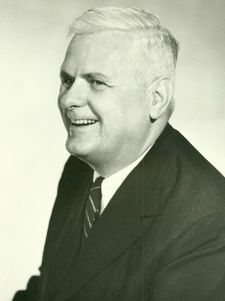-
(b.) -1903 June 14(d.)1995 August 11
Bio/Description
Alonzo Church (June 14, 1903 ? August 11, 1995) was an American mathematician and logician who made major contributions to mathematical logic and the foundations of theoretical computer science. He is best known for the lambda calculus, Church?Turing thesis, Frege?Church ontology, and the Church?Rosser theorem. Church is best known for the following accomplishments:
His proof that Peano arithmetic and first-order logic are undecidable. The latter result is known as Church's theorem.
His articulation of what has come to be known as Church?Turing thesis.
He was the founding editor of the Journal of Symbolic Logic, editing its reviews section until 1979.
His creation of the lambda calculus.
The lambda calculus emerged in his famous 1936 paper showing the existence of an "undecidable problem". This result preceded Alan Turing's famous work on the halting problem, which also demonstrated the existence of a problem unsolvable by mechanical means. Church and Turing then showed that the lambda calculus and the Turing machine used in Turing's halting problem were equivalent in capabilities, and subsequently demonstrated a variety of alternative "mechanical processes for computation." This resulted in the Church?Turing thesis.
The lambda calculus influenced the design of the LISP programming language and functional programming languages in general. The Church encoding is named in his honor.
-
Date of Birth:
1903 June 14 -
Date of Death:
1995 August 11 -
Gender:
Male -
Noted For:
Major contributor to the field of computer science in logic and mathematical theory -
Category of Achievement:
-
More Info:


